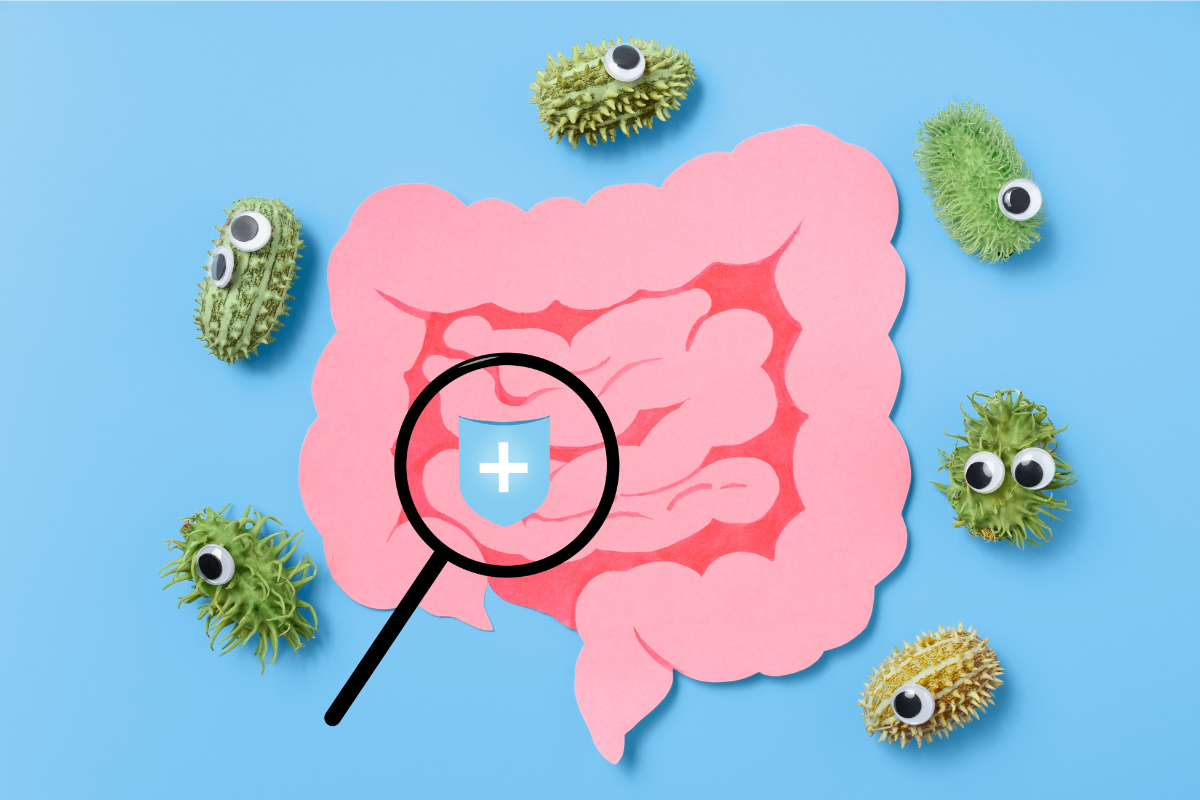Bacteria often get a bad rep because they’re seen as disease causing organisms. But the science is not so simple. While there are bacteria that could cause life threatening diseases, there are also bacteria that are essential for good health. In fact, several studies have shown the significant impact that bacteria, or more precisely, the microbiota plays an important role in human health and disease.
But what is microbiota? Micro meaning small, and biota or biome meaning life. The human gut contains a diverse array of microorganisms - bacteria, archaea, viruses and fungi- collectively known as the gut microbiota. Over 90% of this microbiome is made up of bacteria. Additionally, because these microorganisms cannot survive in acidic environments such as the stomach, their concentration is higher in the intestinal tract.
Why are these microorganisms important?
The Human Microbiome Project is an endeavour to understand the diverse and complex nature of the human microbiome. Their findings have revealed the important roles that gut bacteria play in human health and disease. This is specifically important in the context of colorectal cancer, irritable bowel syndrome, inflammatory bowel disease, Crohn’s disease and ulcerative colitis.
The gut and the brain are connected through the vagus nerve, creating a direct relationship between mood and mental health. A recent study in germ-free mice studies have also demonstrated the significance of gut microbiota in the central nervous system and the gut-brain axis.
Where does it come from?
At birth, an infant's gut is sterile and is first colonised with bacteria through the mother’s milk and the environment. Factors such as delivery mode, diet, and exposure to antibiotics influence the colonisation process. As the infant grows, the microbiome becomes more diverse and starts to resemble that of an adult. Disruption of the microbiome during infancy may lead to disease later in life. The microbiome remains stable until old age when changes occur based on diet and health status.
While there are more than fifty phyla (a term used in classification of organisms, many phyla make a kingdom) of bacteria found in the gut, only four of them are predominant.
In this article, we will explore four main types of bacteria that are found in the human gut and their potential implications for health.
Firmicutes

Firmicutes is a type of bacteria that is found in high numbers in the human gut. These bacteria ferment complex carbohydrates, produce short-chain fatty acids, and regulate the immune system. Primarily, firmicutes keep the colon healthy by producing a substance called butyrate.
They are also involved in the production of essential vitamins such as vitamin K and biotin, and in stimulating the production of a natural antioxidant known as Glutathione. A certain variety produces enzymes that help break down foreign chemicals known as xenobiotics in the gut.
Depending on the type, firmicutes can have a wide range of benefits for the human body. For example, Faecalibacterium Prausnitzii are very useful in combating inflammatory bowel diseases since it has anti-inflammatory effects on the gut and.
Bacteroidetes

Another kind of bacteria that is commonly found in the human gut is Bacteroides. Like firmicutes, they are also involved in the production of short-chain fatty acids.
One species known as Bacteroides Thetaiotaomicron metabolises a very diverse range of polysaccharides. They share a symbiotic relationship with the host body. They are able to break down complex carbohydrates that humans cannot digest alone . They also support the immune system.
Actinobacteria

Although Actinobacteria represent only a small percentage of the total bacteria microbiome, they play a very significant role in gut homeostasis.
Bifidobacteria, a type of actinobacteria, improves gut barrier integrity and promote a healthy immune system.
A whopping two-third of all known antibiotics are derived from this phyla. The ability of Actinobacteria to produce antibiotics has made them of great interest in the development of new antimicrobial drugs. Some Actinobacteria strains have been found to produce novel compounds with antimicrobial and anticancer properties, such as the antibiotic rifamycin and the anticancer agent doxorubicin.
Proteobacteria
Proteobacteria is one of the most abundant phyla of bacteria found in the world. But they are associated with intestinal and extraintestinal diseases. Studies also suggest that they may play a role in lung diseases like asthma and chronic obstructive pulmonary disease.
Many Proteobacteria species like Escherichia Coli contain disease causing pathogens that can cause a range of illnesses in humans.
However, when in small numbers, Proteobacteria strains are beneficial, and play a role in the production of neurotransmitters such as serotonin, as well as in the breakdown of toxic compounds in the gut.
Conclusion
This is by no means a comprehensive list. The human microbiome contains millions of organisms and thousands of species. The gut microbiota is a complex ecosystem that plays a crucial role in human health. The different types of bacteria that make up the gut microbiota have specific functions that are essential for the proper functioning of the gut and overall health which is established on the basis of symbiosis. A diet rich in prebiotics, probiotics and fibre are key to keep your gut microbiome balanced.

